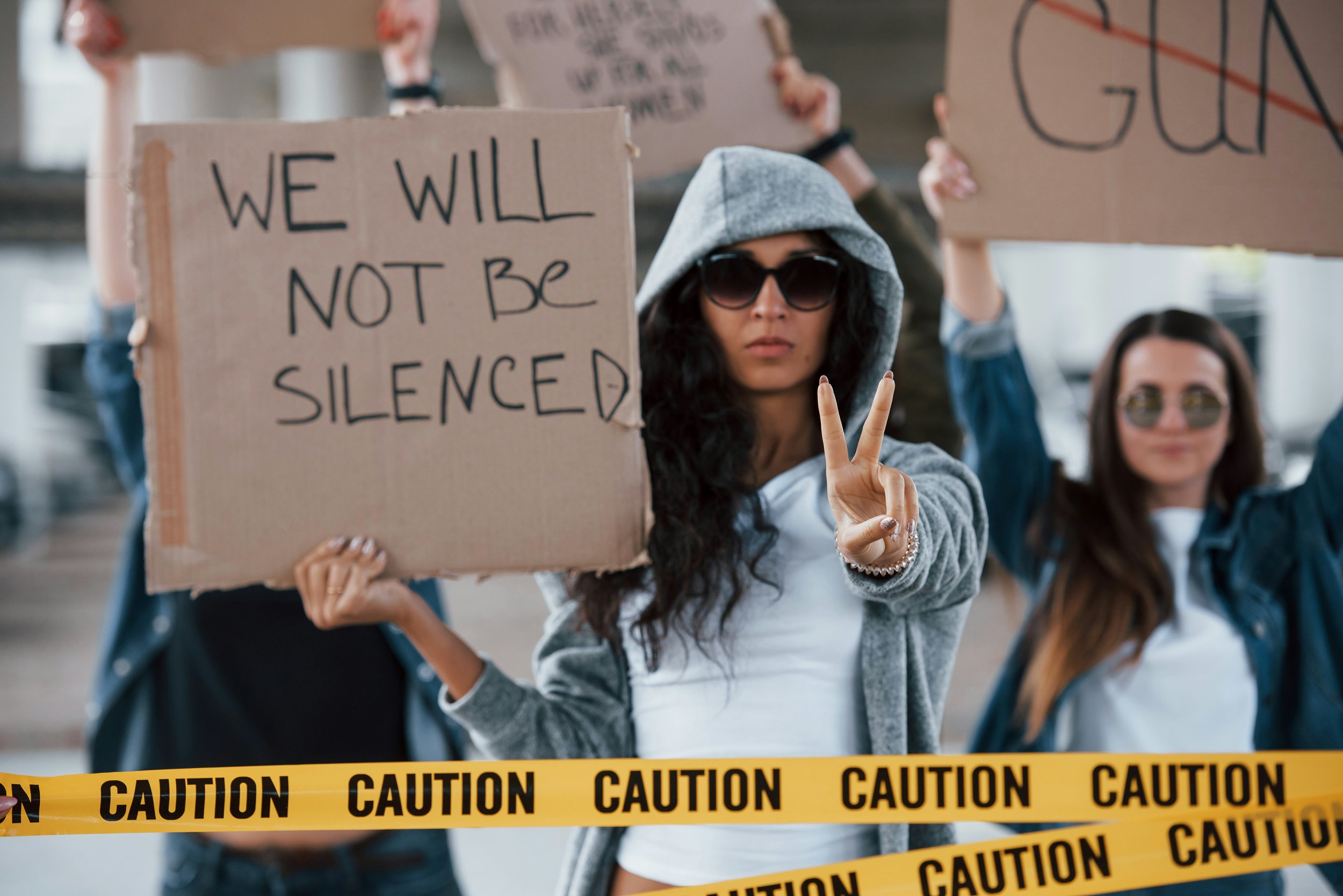Women Voicing Injustice
This topic is deeply personal to me. While I generally avoid framing issues through a gendered lens, I believe it is essential to focus on women’s experiences in this case. The impetus for this post came from a recent incident where I realized that a situation I had dismissed as innocuous was, in fact, something I should have addressed. Additionally, I am profoundly disheartened by the backlash against the MeToo movement, particularly from other women. Hearing my own mother dismiss it as "bullshit" felt like a personal blow, especially given the pervasive sexual harassment I’ve endured throughout my 36 years. From an early age, I was conditioned to ignore, brush off, and forget such experiences, a pattern that I now recognize as deeply harmful.
Throughout history, societal norms have systematically silenced women when they attempt to voice discomfort or objection to inappropriate treatment. This suppression isn’t just an artifact of the past but persists in subtle, often insidious forms in modern society. Women are frequently encouraged—both explicitly and implicitly—to tolerate behavior that disrespects their boundaries rather than confront it. Let’s explore the societal structures and cultural expectations that make it so difficult for women to speak up, as well as the consequences of this pervasive issue.
The Burden of Politeness
From a young age, girls are socialized to prioritize politeness and avoid confrontation. Phrases like “be nice” or “don’t make a scene” subtly reinforce the idea that asserting oneself, especially against inappropriate behavior, is unacceptable. This expectation of niceness often places women in an uncomfortable bind: to call out mistreatment risks being labeled “difficult” or “aggressive,” while remaining silent perpetuates their discomfort and undermines their agency.
Fear of Retaliation
One of the most significant barriers to speaking out is the fear of retaliation. Women who voice concerns about inappropriate behavior often face professional, social, or even personal repercussions. They risk being disbelieved, dismissed, or ostracized. In the workplace, for instance, raising such issues can jeopardize job security or professional relationships. This creates a chilling effect where women weigh the cost of speaking out against the risk of enduring mistreatment in silence.
Victim-Blaming Culture
When women do speak up, they are frequently subjected to victim-blaming. Questions like “What were you wearing?” or “Why didn’t you say something earlier?” shift the focus from the perpetrator’s behavior to the victim’s perceived culpability. This pervasive attitude not only discourages women from coming forward but also perpetuates the harmful narrative that they are responsible for others’ inappropriate actions.
Minimization and Gaslighting
Another common response women face is the minimization of their experiences. Comments like “He didn’t mean anything by it” or “You’re overreacting” invalidate their feelings and experiences. This form of gaslighting can make women second-guess their perceptions and hesitate to voice concerns in the future.
The Impact of Silence
The societal pressure to remain silent about inappropriate treatment has far-reaching consequences. For women, it can lead to feelings of powerlessness, frustration, and self-doubt. On a broader scale, this silence allows harmful behaviors to persist unchallenged, reinforcing a culture where disrespect and misconduct are normalized.
How We Can Do Better
Breaking this cycle requires a collective effort to change societal attitudes and support women’s voices. Here are a few steps we can take:
Challenge Cultural Norms: Encourage assertiveness and boundary-setting from a young age, regardless of gender. Teach children that speaking up against injustice is not only acceptable but commendable.
Support and Believe Women: Create environments where women feel safe to share their experiences without fear of dismissal or retaliation. Listen and validate their concerns.
Hold Perpetrators Accountable: Shift the focus from scrutinizing victims to addressing the behavior of those who cross boundaries. Establish clear consequences for inappropriate actions.
Promote Workplace Equity: Implement policies that protect employees who report misconduct and ensure fair treatment for all.
Educate About Consent and Respect: Foster widespread understanding of boundaries, consent, and mutual respect through educational programs and public discourse.
By addressing the systemic factors that discourage women from speaking up, we can foster a culture where everyone’s voice is heard and respected. It’s time to move beyond silence and build a society that prioritizes dignity and equality for all.
